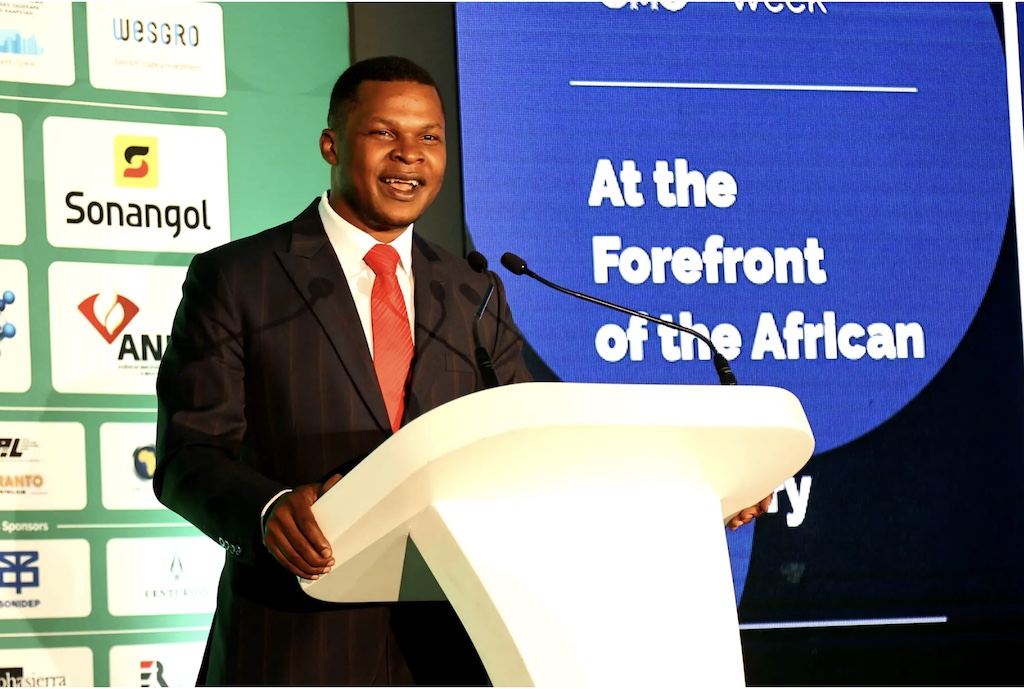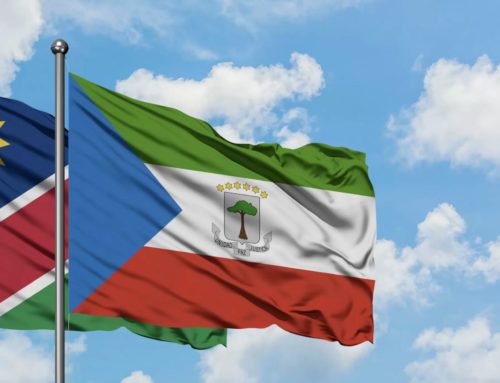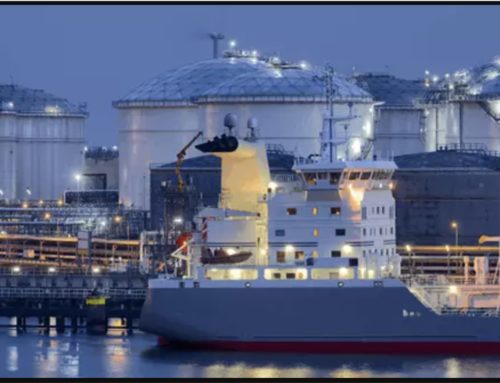
The Background
An excerpt from Africa Oil Week’s announcement of its new event ambassador bore more than a passing resemblance to the African Energy Chamber’s Cape to Cairo narrative. In a word-for-word paragraph lift, Hyve events, the organizers of the Africa Oil Week, falsely ascribed the lifted passage to Dr. Emmanuel Ibe Kachikwu, with whom they negotiated an ambassadorship arrangement.
In the Hyve Event’s announcement dated May 17th, 2022, Dr. Kachikwu purportedly stated: “We must unite as a continent to drive a just energy transition process from Cape to Cairo in order to move beyond being a mere supplier of primary commodities to the world, but rather an influential economic tour de force that can determine its own destiny and not be bullied on the global stage.” In a March 2022 statement, the African Energy Chamber expressed the narrative.
Hyve Event’s covert attempt to grab the African Energy Chamber’s narrative and make it their own may have set in motion another unpleasant situation for Africa Oil Week, whose blunder made the swiftly emerging African Energy Week conceivable.
Africa Oil Week has been the continent’s most important international meeting for ‘stimulating deals and transactions across the African Upstream for more than 25 years, helping to bring together governments, national and international oil companies, independents, investors, the G&G community, and service providers.
Following the COVID-19 pandemic, Hyve Events concluded that hosting the Africa Oil Week 2021 on the continent would be unsafe, thus the event was moved to Dubai. “After careful evaluation of government guidelines and consultation with our customers, Africa Oil Week 2021, originally scheduled from 1-5 November in Cape Town, South Africa, will be moving dates and location and will now take place on 8-11 November 2021 in the Madinat Jumeirah in Dubai (United Arab Emirates),” according to a statement from Hyve Events.
The African Energy Chamber, which had supported the Africa Oil Week, was not pleased with Hyve Events’ decision. This dissatisfaction was shared by many Africans, who argued that forsaking an African country that has managed the COVID-19 outbreak well is a clear indicator of opportunism and a break with the commitment to support all things African.
Given the constant attacks on the oil and gas industry, the African Energy Chamber believes that the time for an Africa-focused energy event that prioritizes African narratives and African people has never been more critical, especially with the COVID-19 pandemic wreaking havoc on the continent’s socio-economic and industrial sectors.
As a result, the chamber promised to keep pressing for debates in Africa on energy transition, fiscal responsibility, free markets, upstream, midstream, downstream, renewables, and petrochemicals. The African Energy Week was born as a result of this determination.
On the heels of the Covid-19 outbreak, the AOW, in keeping with its propaganda tendency, launched the most virulent anti-African oil and gas business campaign the continent has ever seen. Despite the event ostensibly being “the voice of exploration and production,” it became clear when it announced its event program that it was not interested in African oil and gas producers participating in the discourse. Worse is AOW’S reputation for not only listing unconfirmed speakers on its website but also misrepresenting high-level attendees at its events.
During an inaugural address, NJ Ayuk, Chair of The African Energy Chambers stated that African Energy Week was born out of a commitment to African energy and African people.
“When Africa Oil Week (AOW) made the decision to abandon the continent for international venues, using Africa’s incapability in dealing with the pandemic as an excuse, the African Energy Chamber (AEC) not only saw an opportunity to fill the gap in the market, but a need to provide the continent with a platform for engagement, discussions, and deal-making, all of which are critical, now more than ever, for advancing Africa’s energy and economic recovery in the wake of the COVID-19 pandemic”.
While Africa Oil Week stuck to its guns and held the event in Dubai, which was said to have had a poor turnout, with no participation from African oil producers, The African Energy Chamber celebrated the first edition of the Africa Energy Week in 2021 with a very impressive attendance and participation of all the African producers– to the chagrin of the organizers of AOW.
Ahead of the 2022 event, the Africa Oil Week London team managed to secure a short-lived ambassadorship of Nigeria’s former president Olusegun Obasanjo. Words had it that the former president, upon having a private meeting with executives of the African Energy Chamber withdrew his support for AOW.
In a pretty strange move, the AOW plan B saw the appointment of Dr. Ibe Kachikwu as the new event ambassador, tasked with leading the green summit and promoting the green message for Africa Oil Week. Dr. Ibe Kachikwu was Nigeria’s Minister of State for Petroleum Resources and former Group Managing Director of the Nigerian National Petroleum Corporation between November 2015 and May 2019.
The twist is that Timipre Sylva, Nigeria’s current Minister of State for Petroleum Resources, had joined forces with the African Energy Week as a partner prior to Kachikwu’s sign-on deal with AOW. Regardless of Kachikwu’s Green message, Sylva is optimistic about his position that Africa needs oil and gas.
It remains to be seen how the incumbent and his predecessor will struggle over energy transition in Nigeria and across Africa. The development has also left many wondering why Africans must choose between a London and an African narrative. When approached, NJ Ayuk declined to comment on the situation.
Africa Oil Week (AOW) and Africa Energy Week (AEW) will collide again in October 2022, this time in the same city. In contrast to Africa Energy Week’s lobbying for oil and gas, AOW is pushing an agenda to leapfrog Africa towards a speedy transition to Green Energy, as advised by Europe and America.
The African Energy Week has been outspoken in its support for oil and gas firms, as well as new producers such as Mozambique, Namibia, Senegal, Mauritania, and Uganda, as well as the establishment of an African Energy Bank.
Mr Thoelken, a seasoned ambassador and German Climate Czar and Energy Policy, took the position of the London Africa Oil Week and criticised Ayuk’s stance on oil and gas, saying the focus should be on implementing a European plan for energy transformation. He argued that there is no need for new oil and gas investments in Africa. Only renewable energy.
In his response, Ayuk Countered Thoelken’s stance that Energy poverty and a Just Energy Transition are more crucial for Africa, hence oil and gas are required. “Gas has been dubbed “green” by your EU. Are they incorrect? Climate change is a major issue, but 600 million people lack access to power, and 900 million do not have access to clean cooking. Oil, natural gas, and, in some cases, coal should all be viable options. We must progress toward renewable energies and carbon capture while still fighting for the underprivileged. “We have a problem if climate action is to safeguard the wealthy at the expense of the poor,” Ayuk stated.
Ayuk further responded to Thoelken by stating that energy poverty and a Just Energy Transition are more important for Africa so oil and gas is needed. “Your EU has termed Gas Green. Are they wrong? Climate change is a big problem, but we also have 600 million people with no access to electricity and 900 million with no access to clean cooking. We should be able to use oil, natural gas, and in some stages coal. We need to move towards renewable energies and carbon capture but still continue to fight for poor people. If Climate action is to protect the rich at the expense of the poor then we have a problem”.
Ayuk further challenged Thoelken and the London Africa Oil Week team “You are a good man but I think you need to look at this issue differently. You are using more coal than the entire African continent. If these Renewables are so sweet, use them. I think it is highly condescending for you, a BIG polluter to lecture Africans who have not contributed up to 3% GHG on this. No one loves the environment more than we do. Germany is building an LNG terminal. Is that wrong?
“After COP26, you have imported more coal. The UK is doing an oil license round. The UK is opening Coal mines for the first time in 30 years, Norway gave out 52 oil licenses in January, The US just asked for drilling in federal lands and today you are telling Africans to abandon their oil in the ground. NEVER. How are we going to drive your Tesla if we have no electricity?!” Exclaimed Ayuk.
Original Source: https://www.vanguardngr.com/2022/05/africa-oil-week-pits-former-nnpc-boss-against-african-energy-chamber-narrative/




